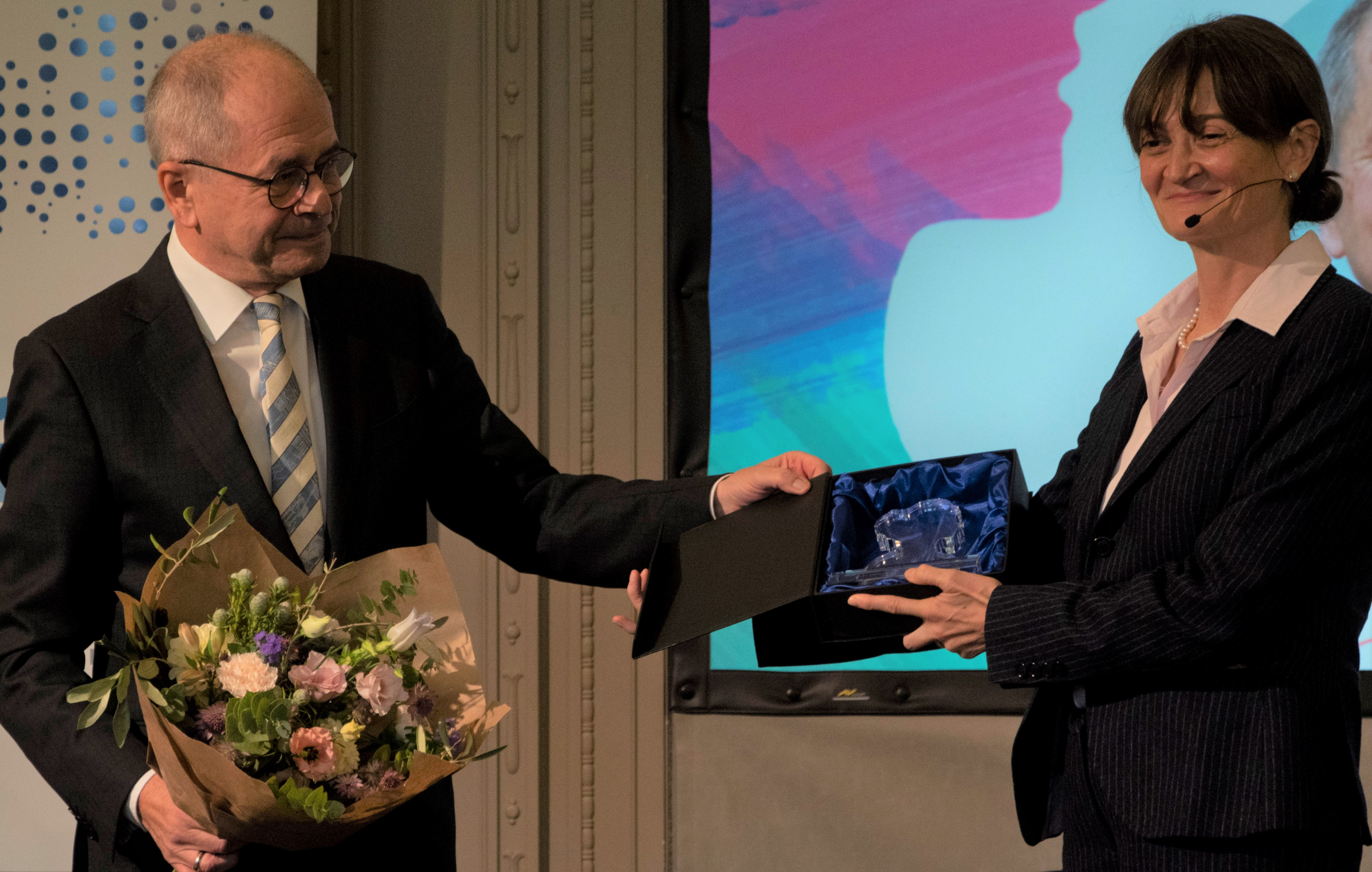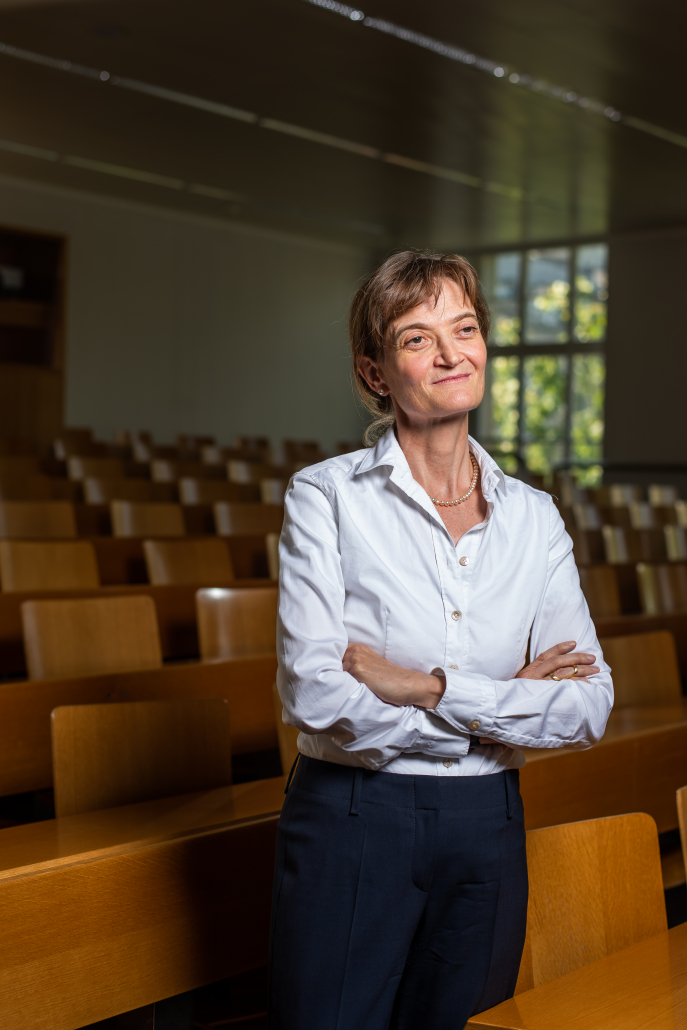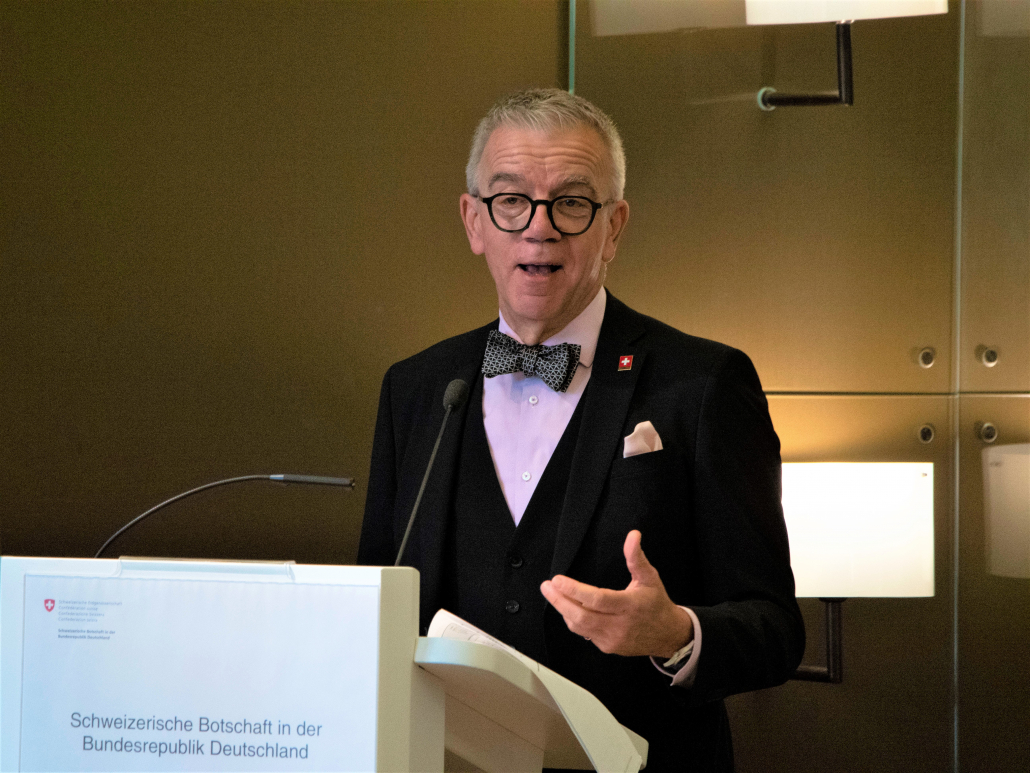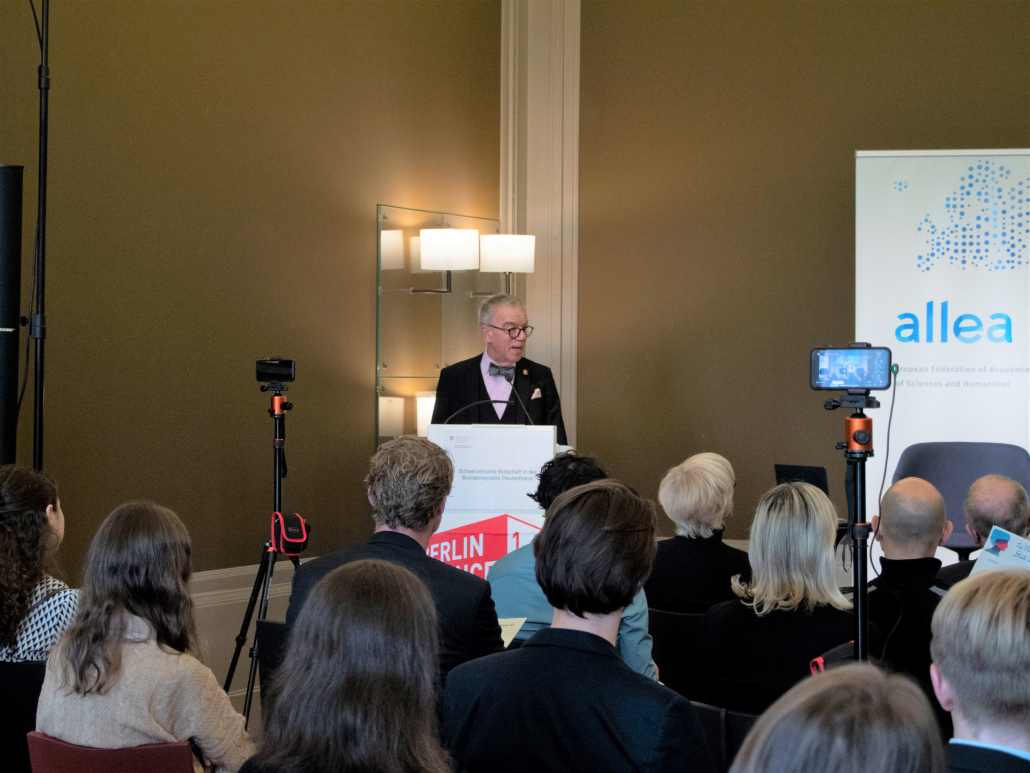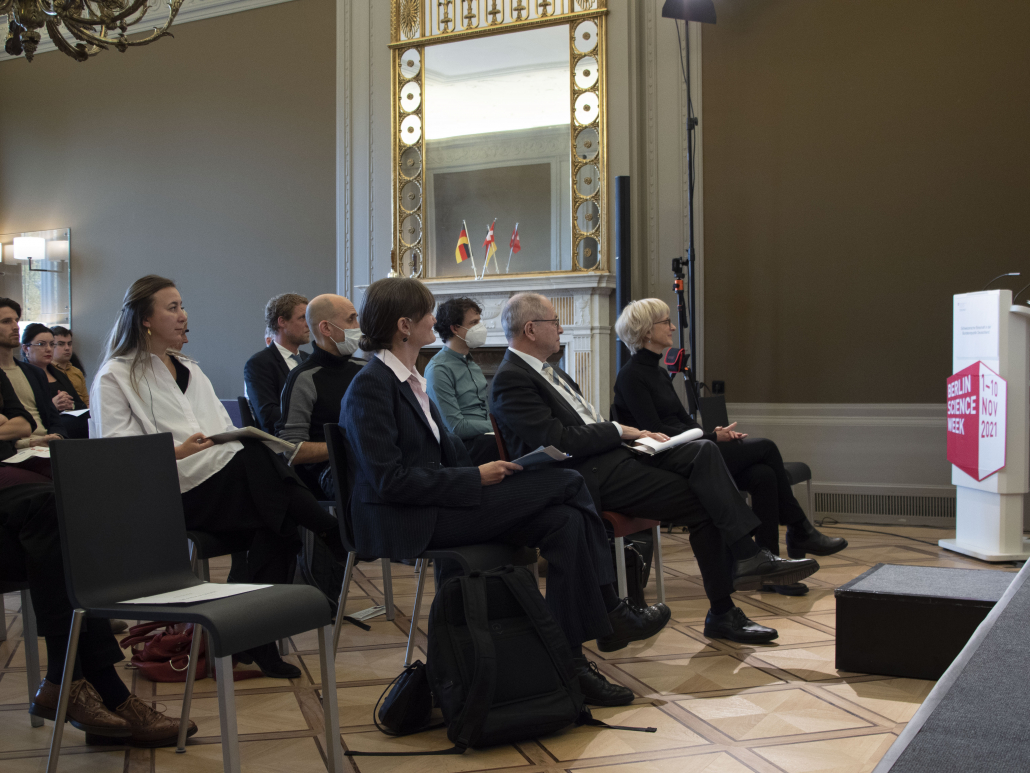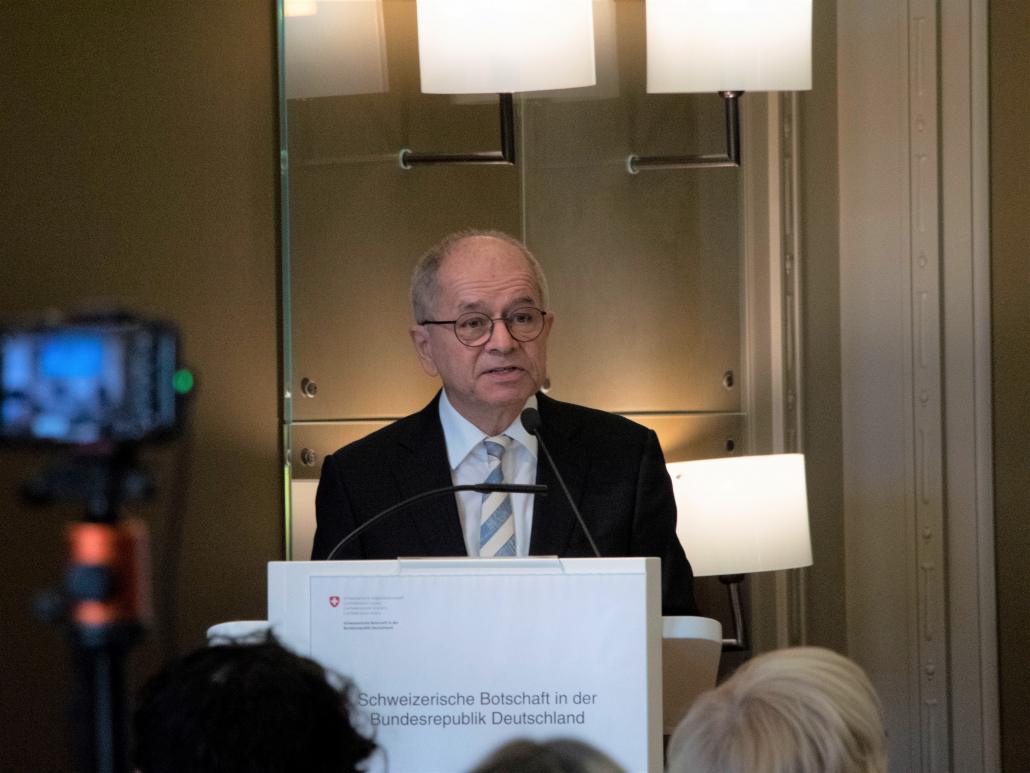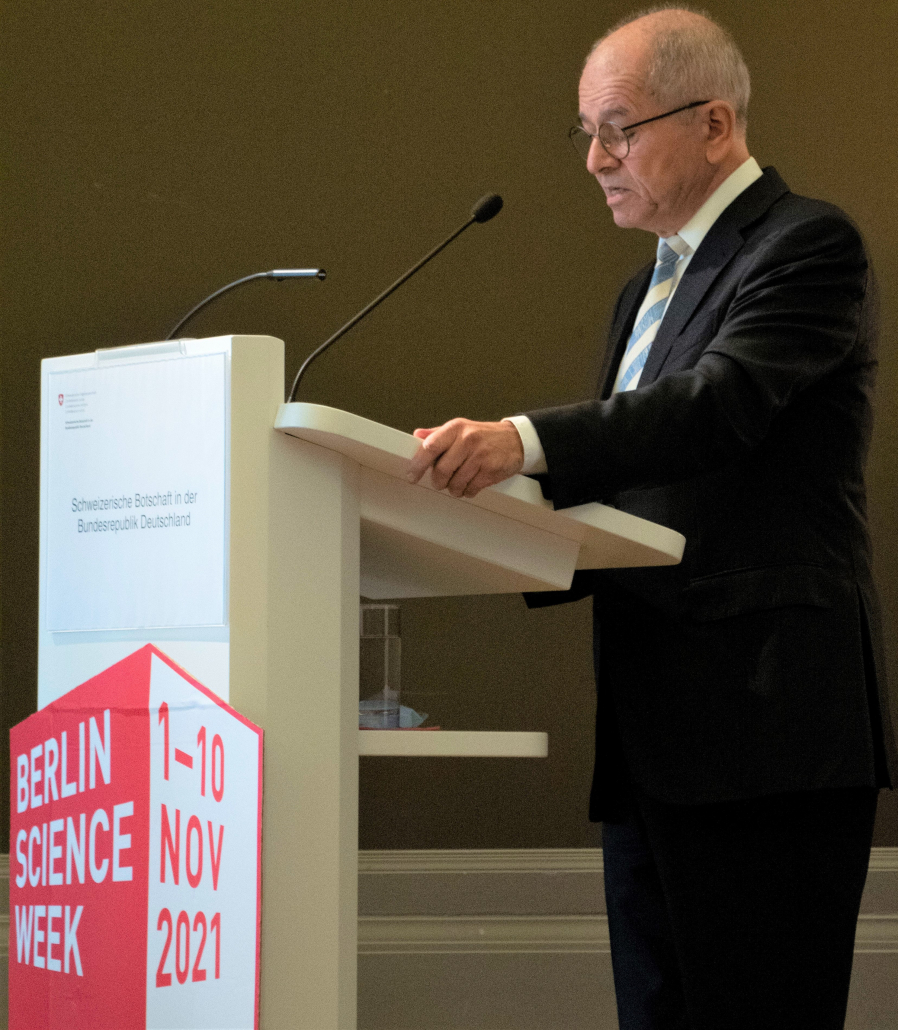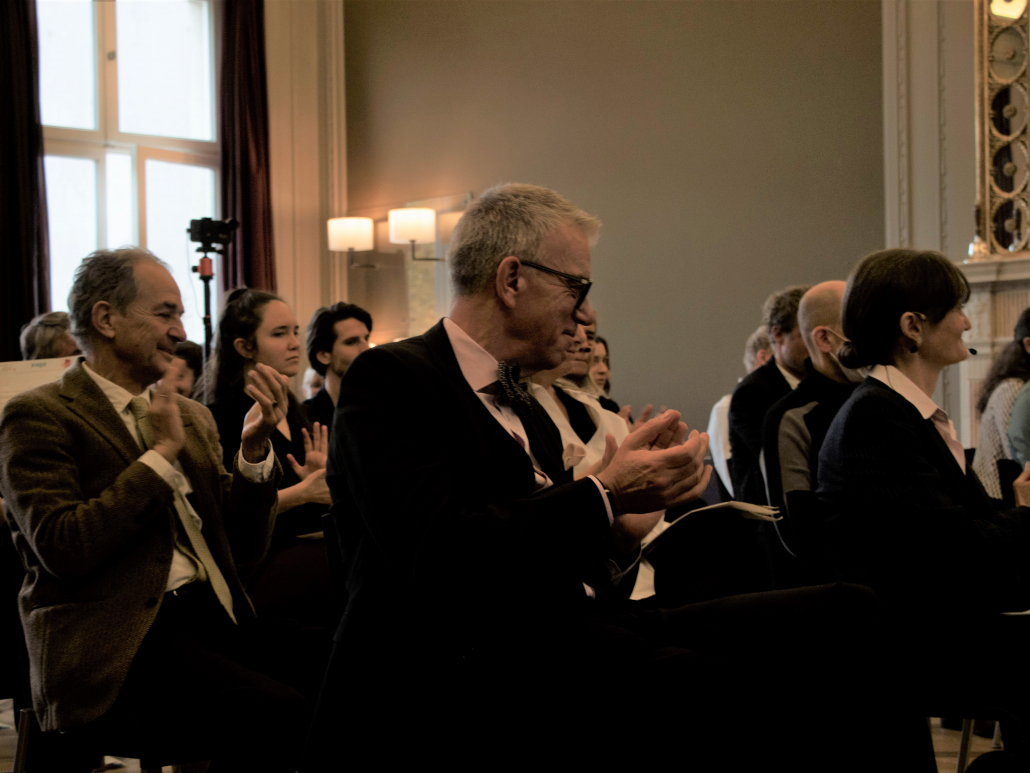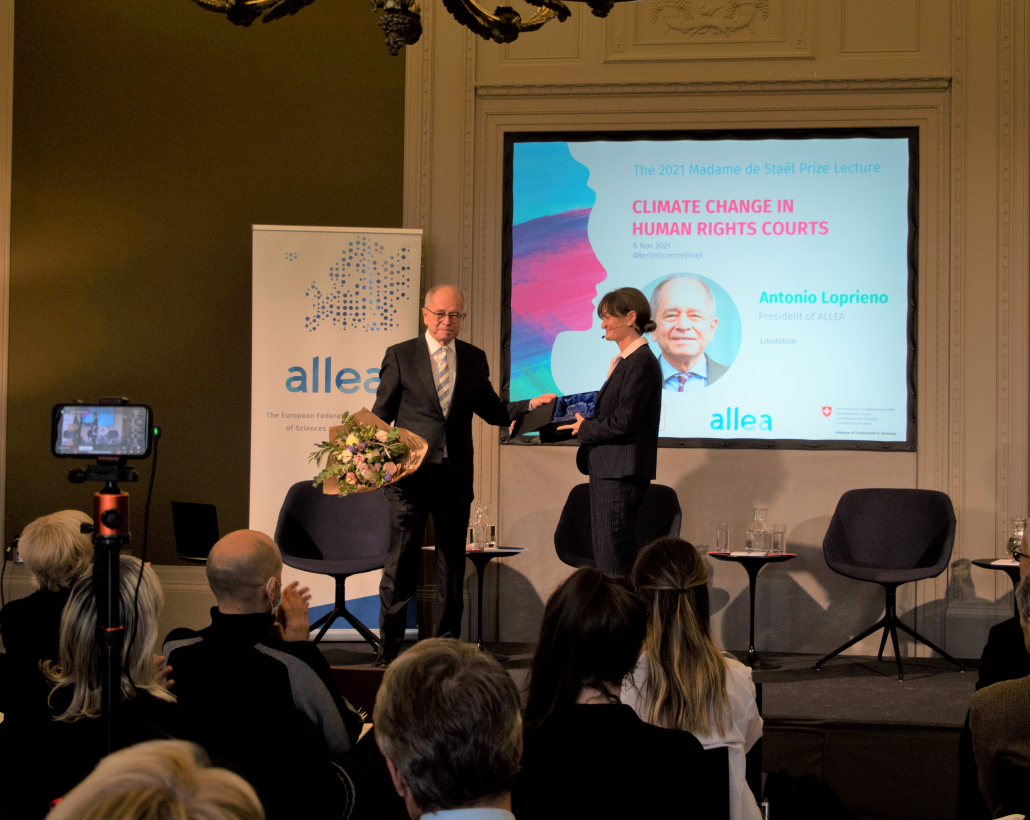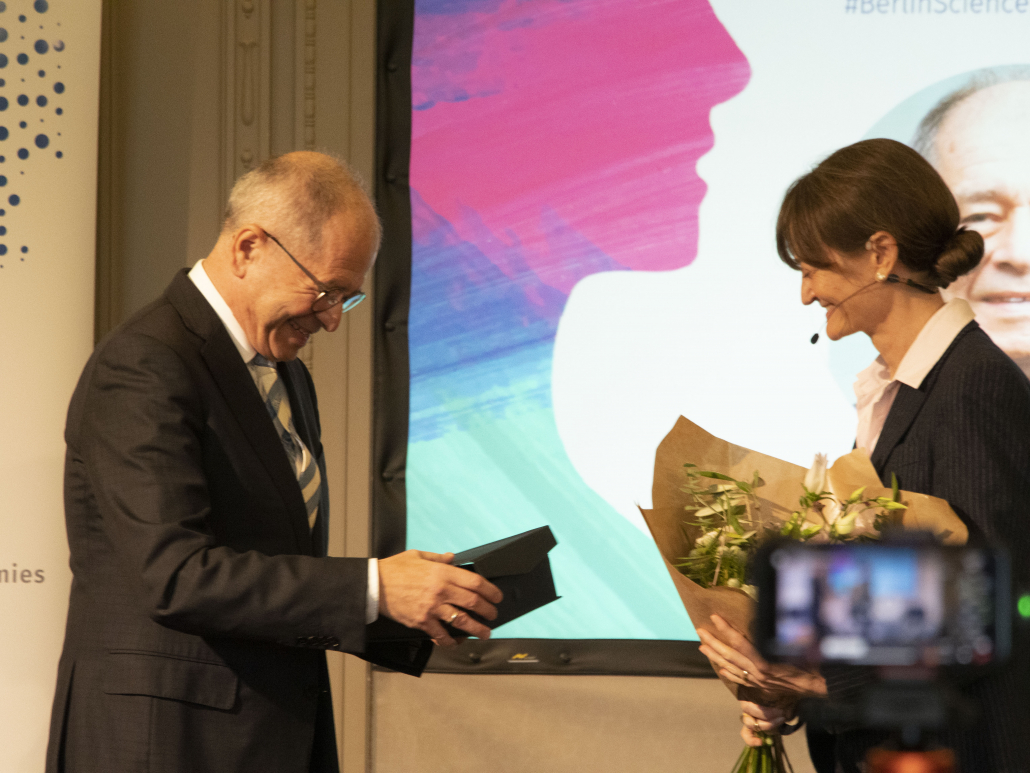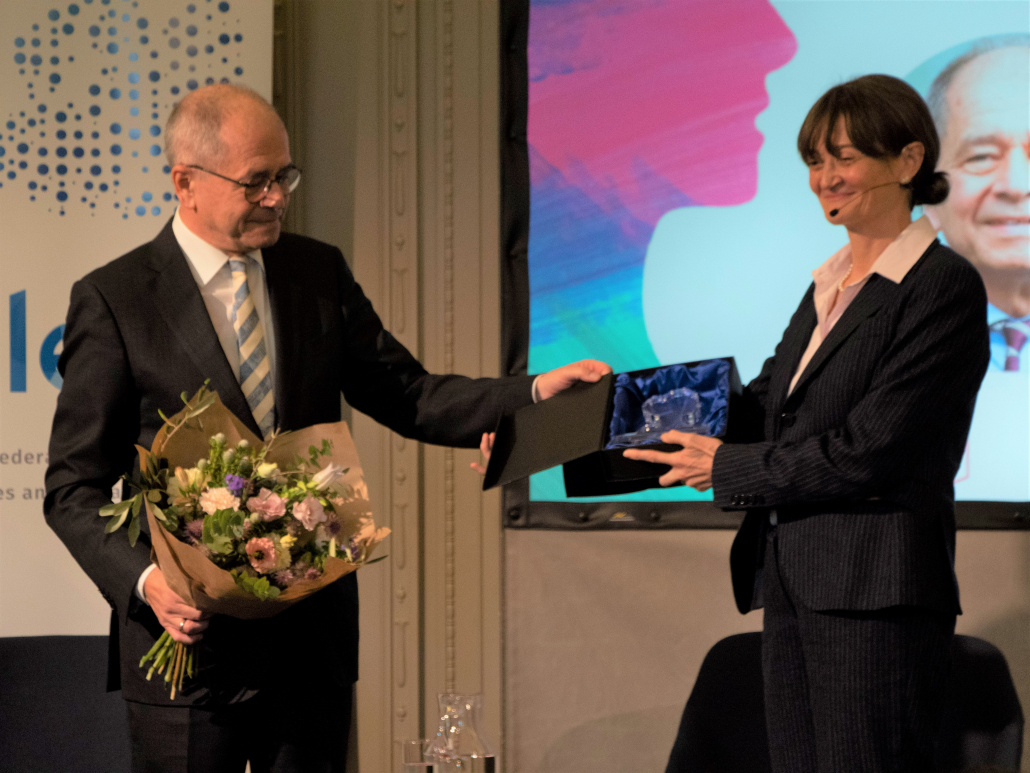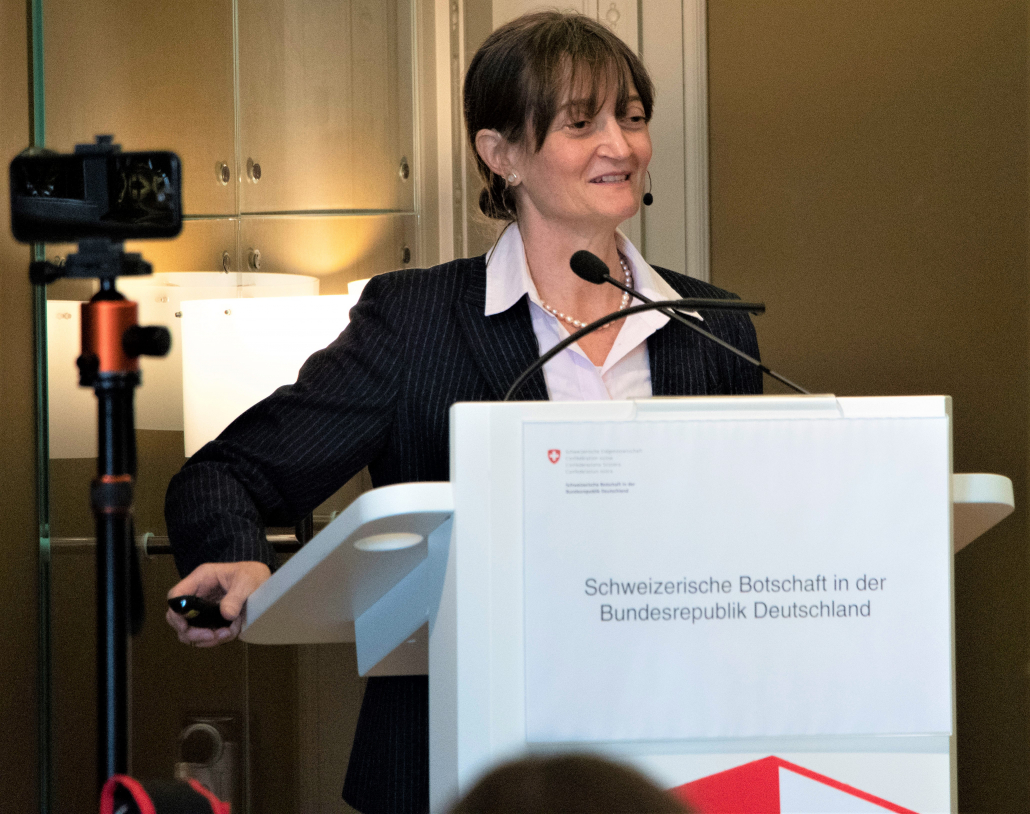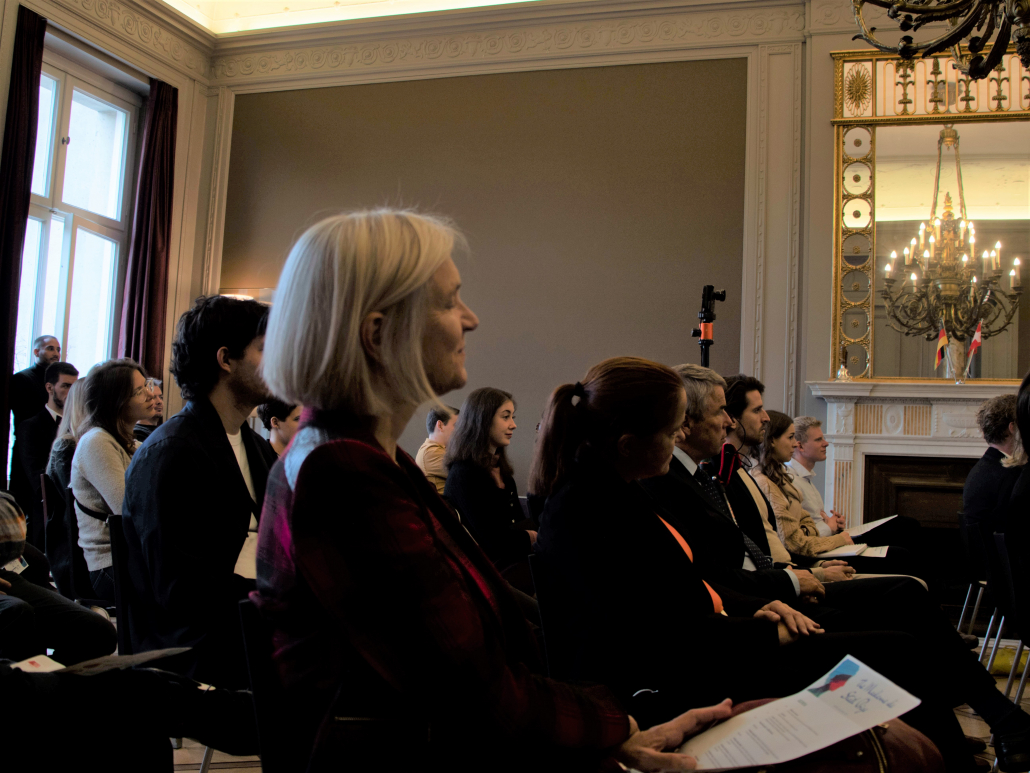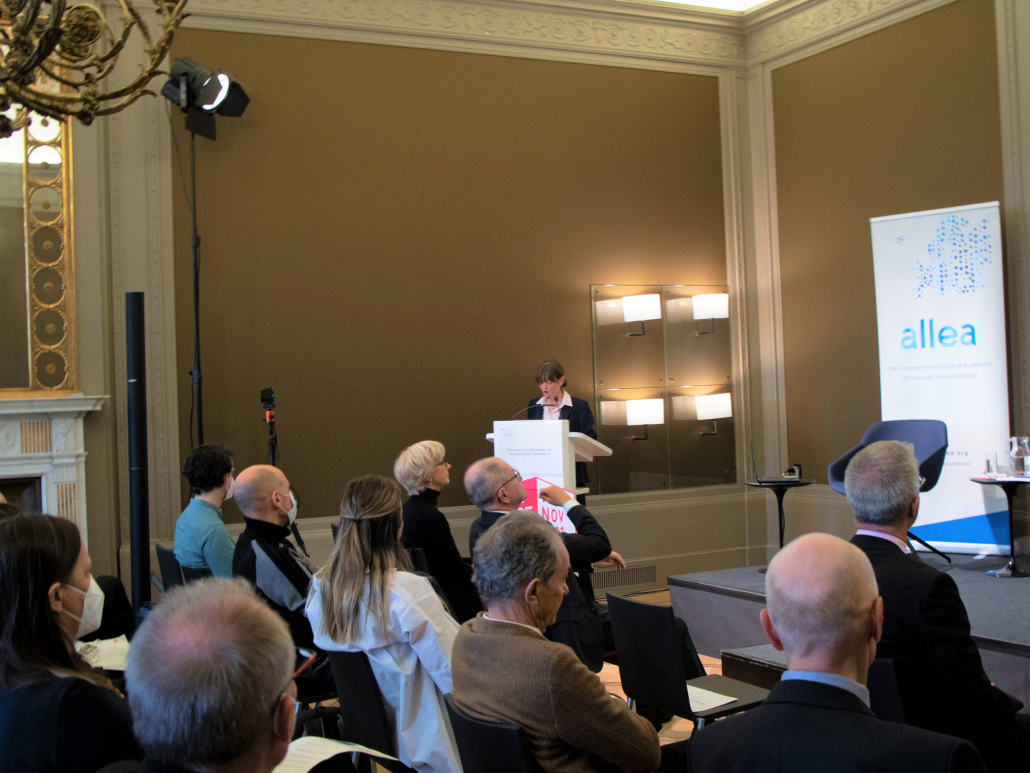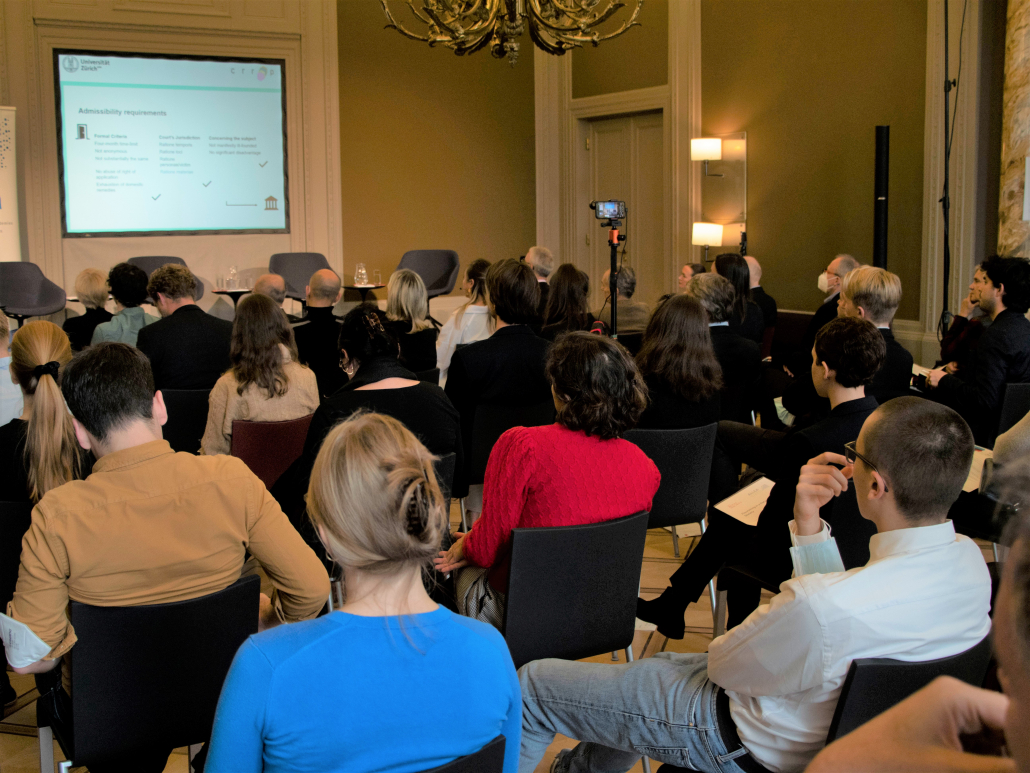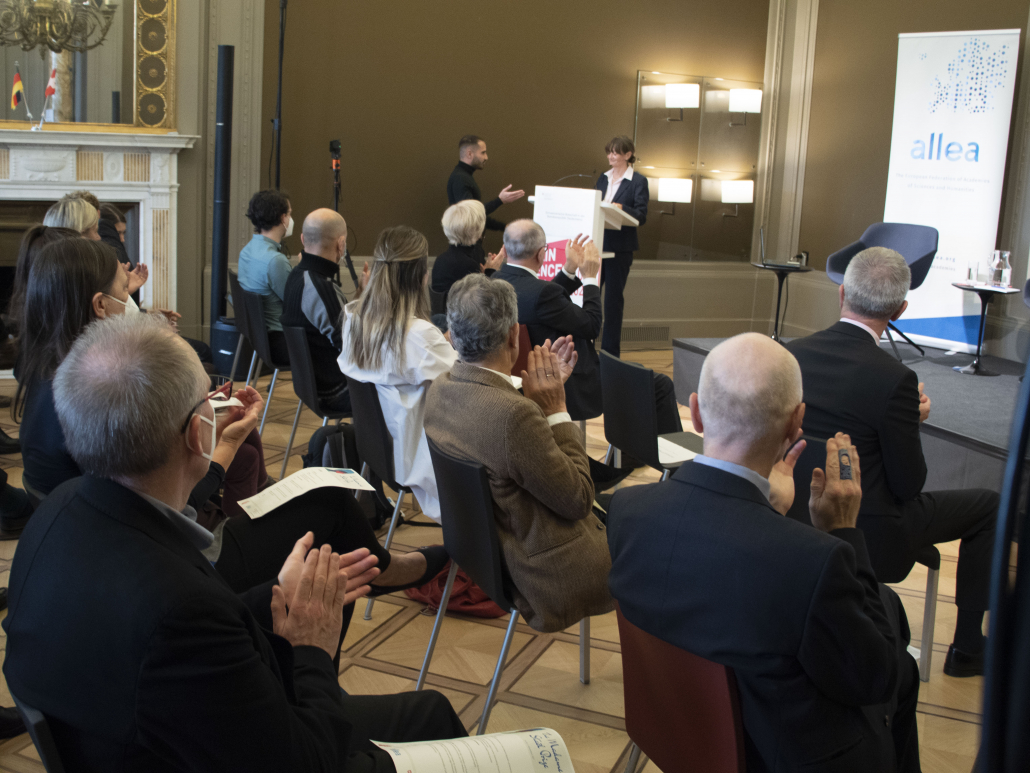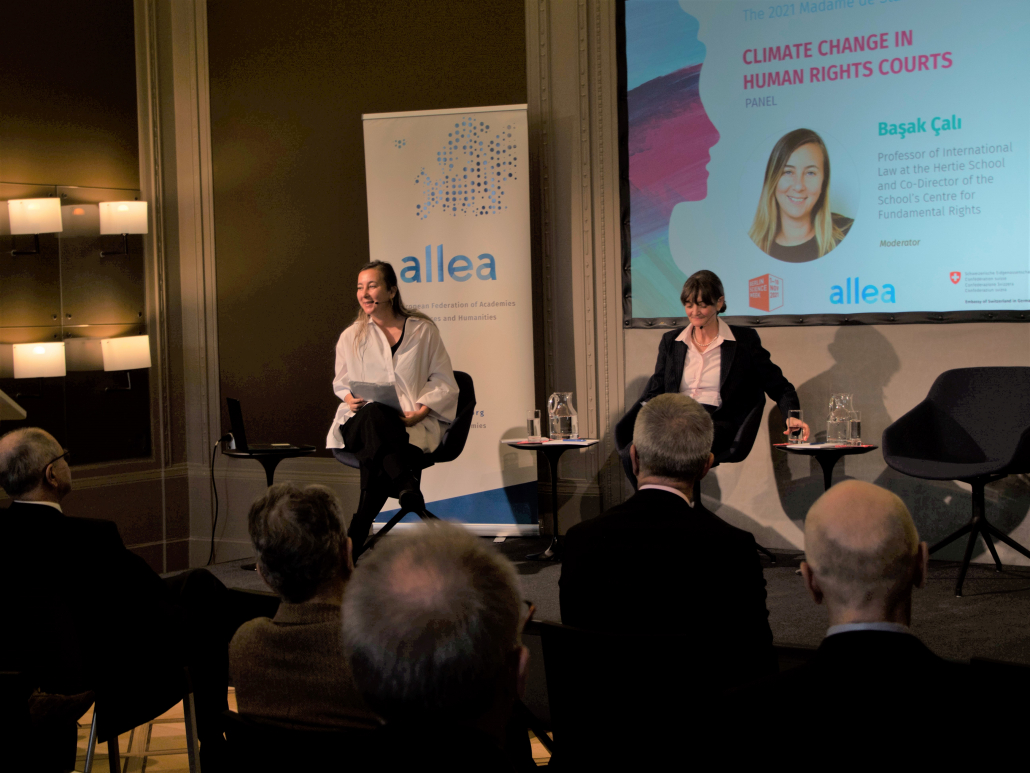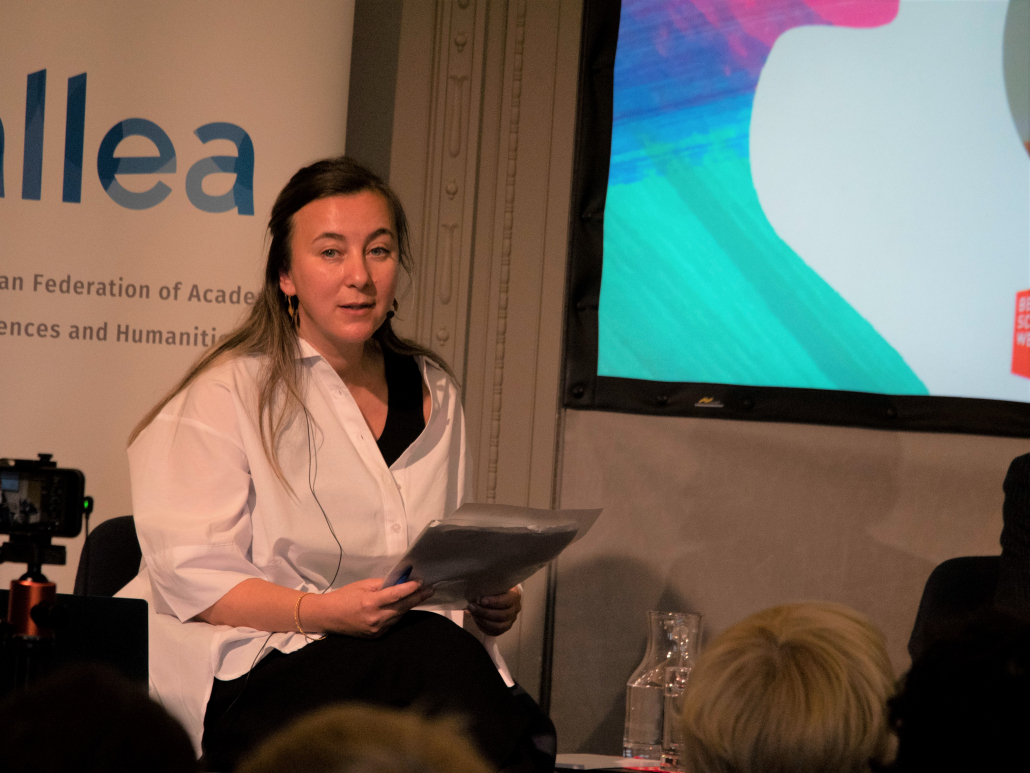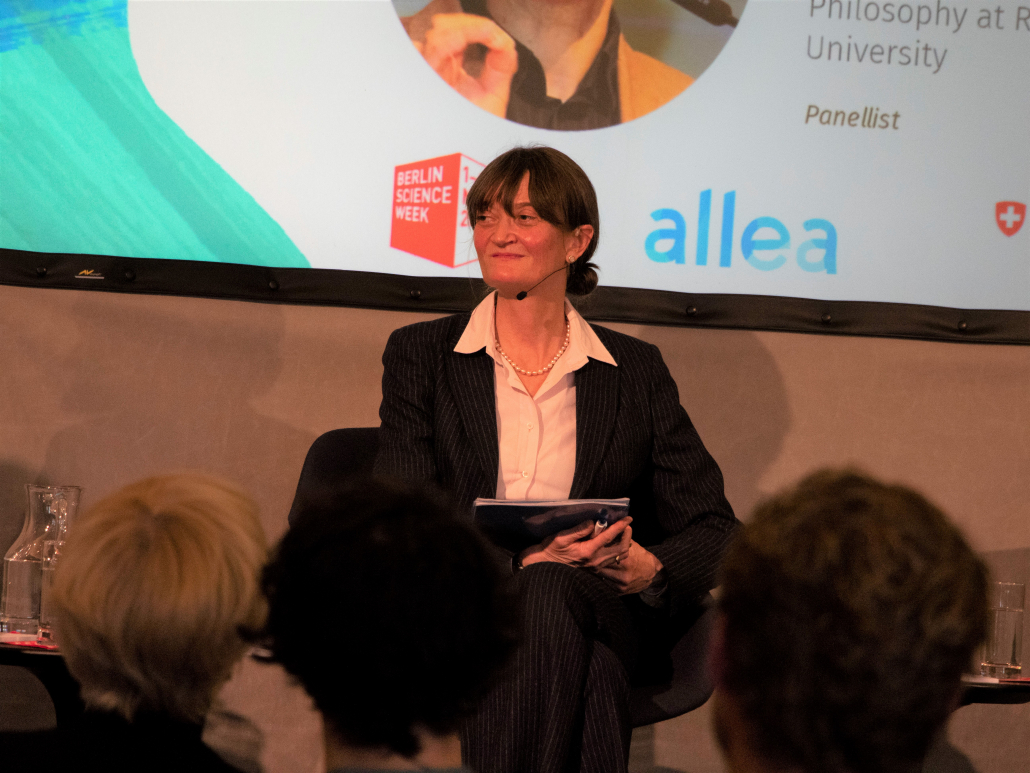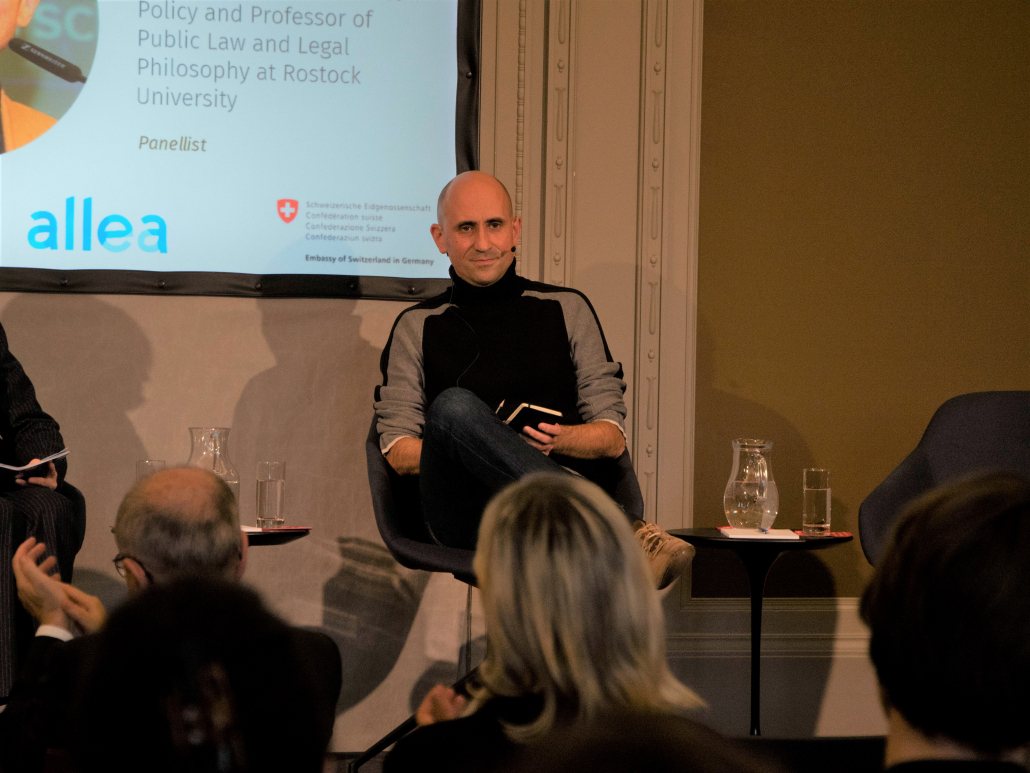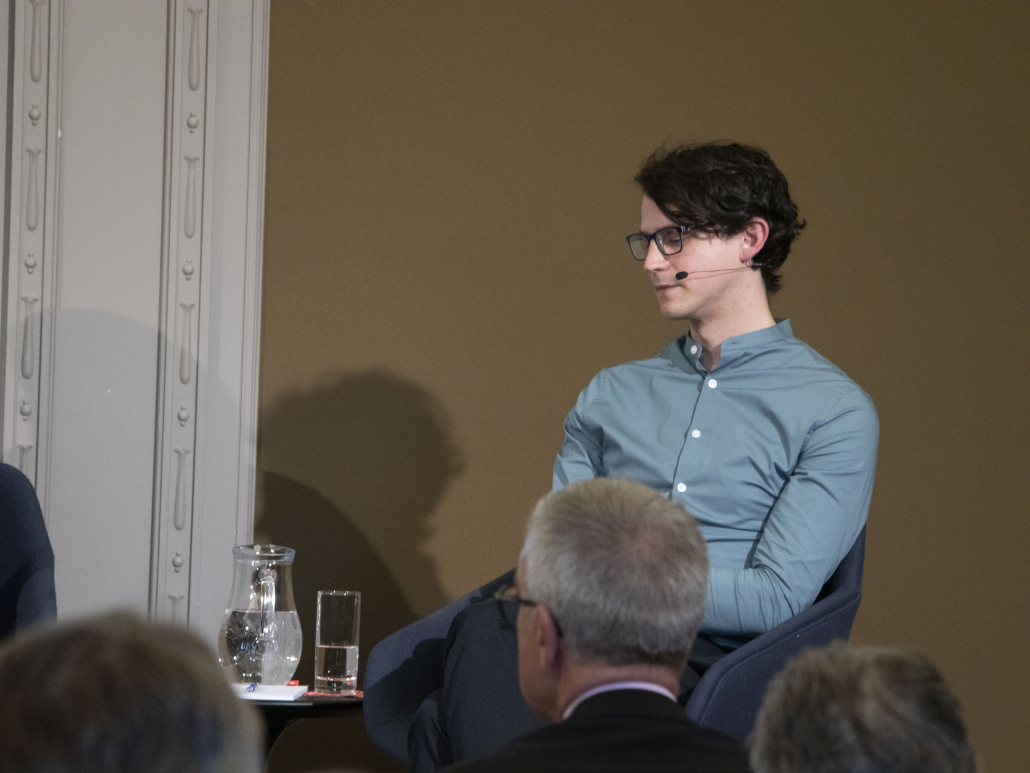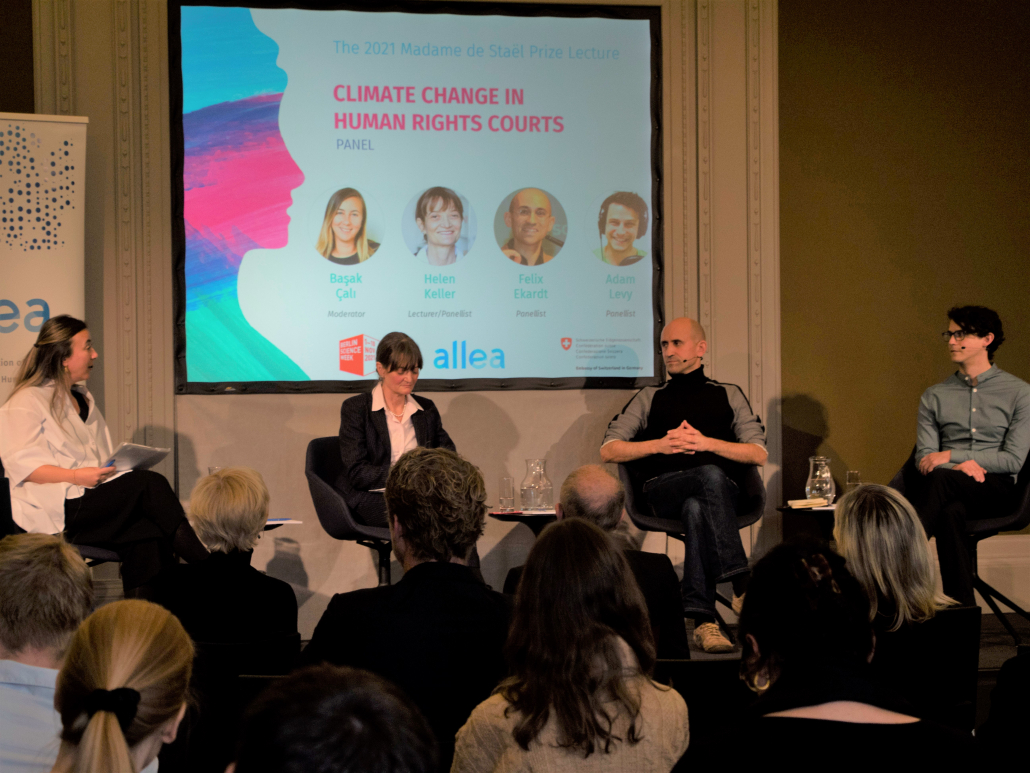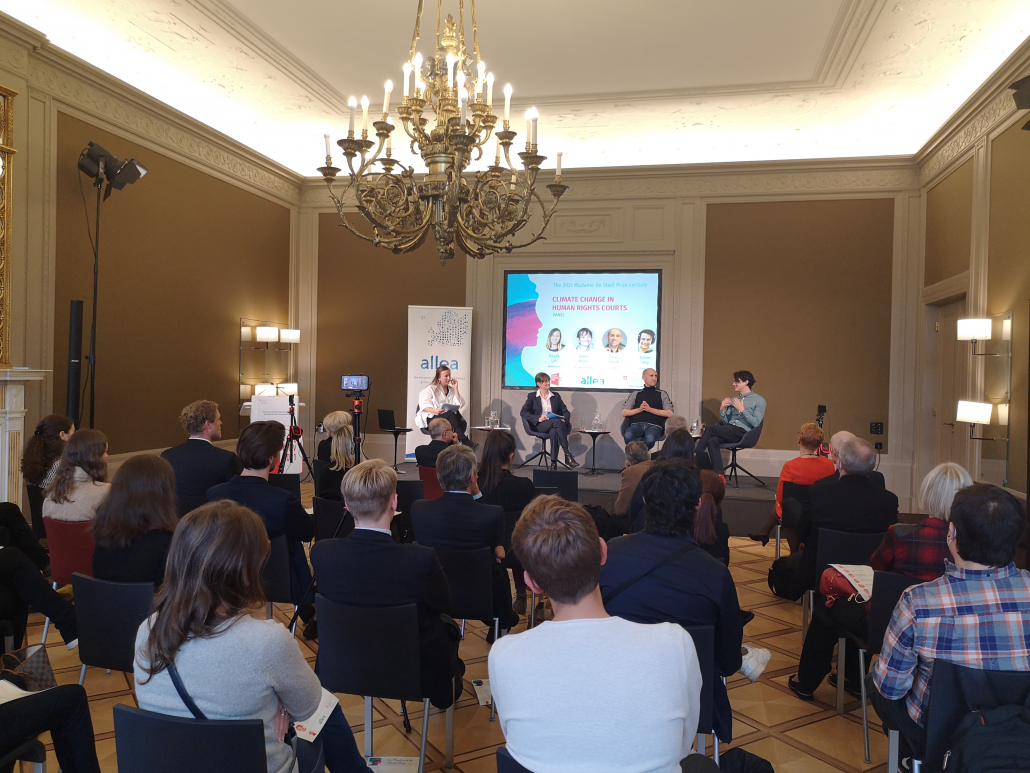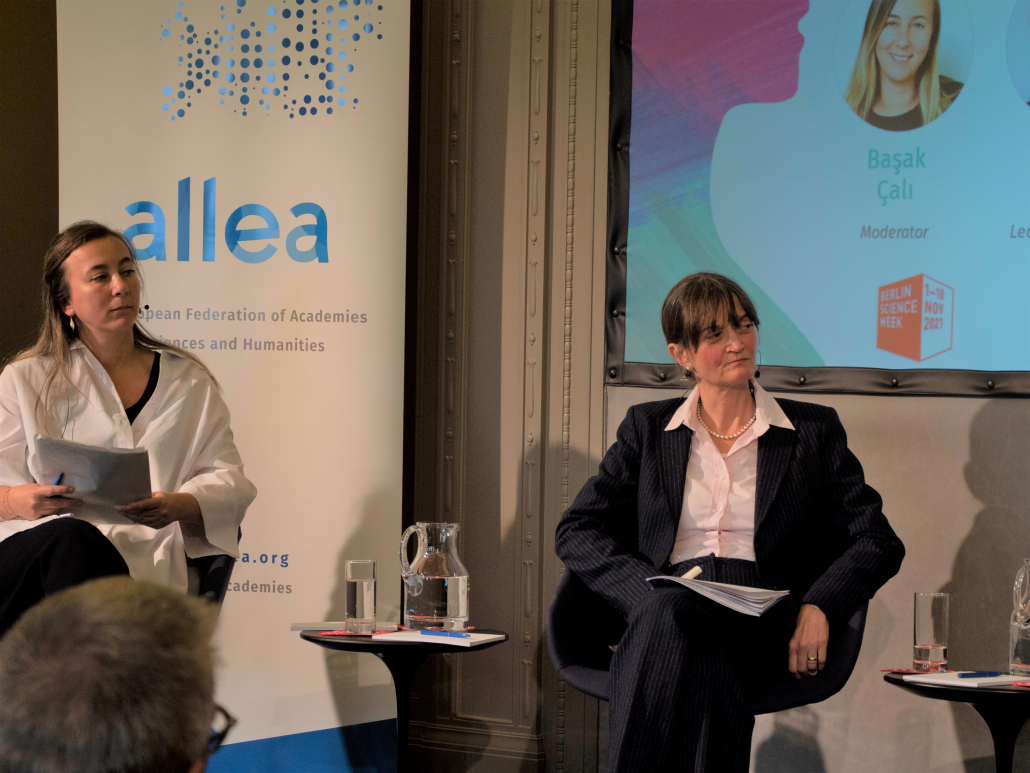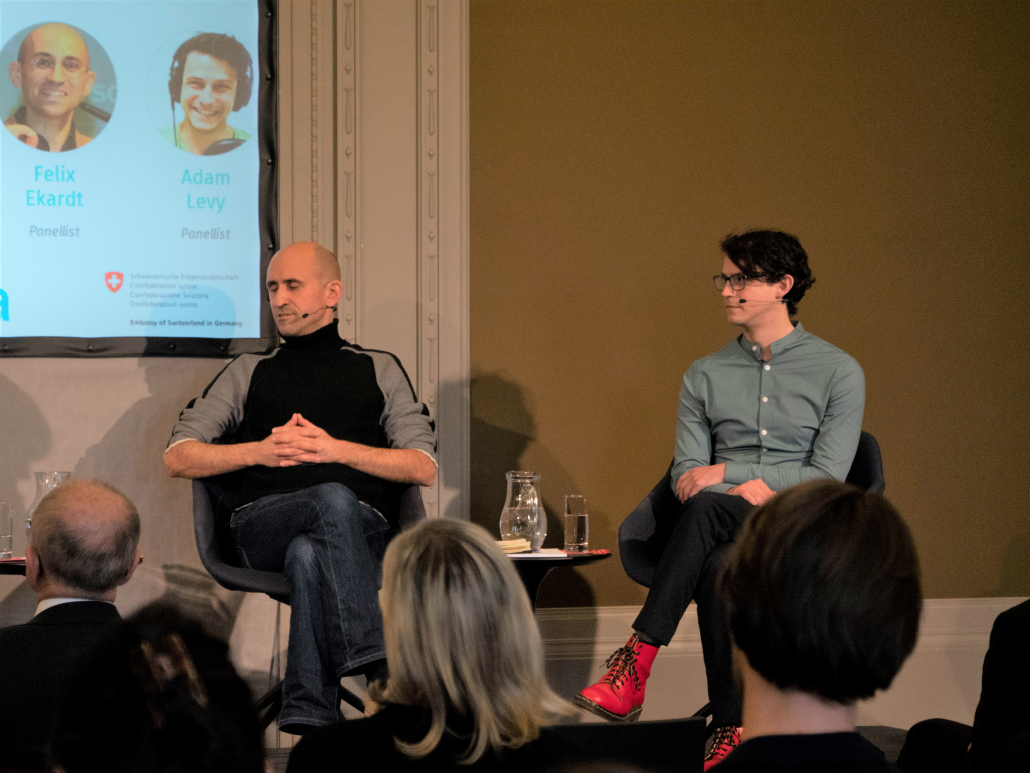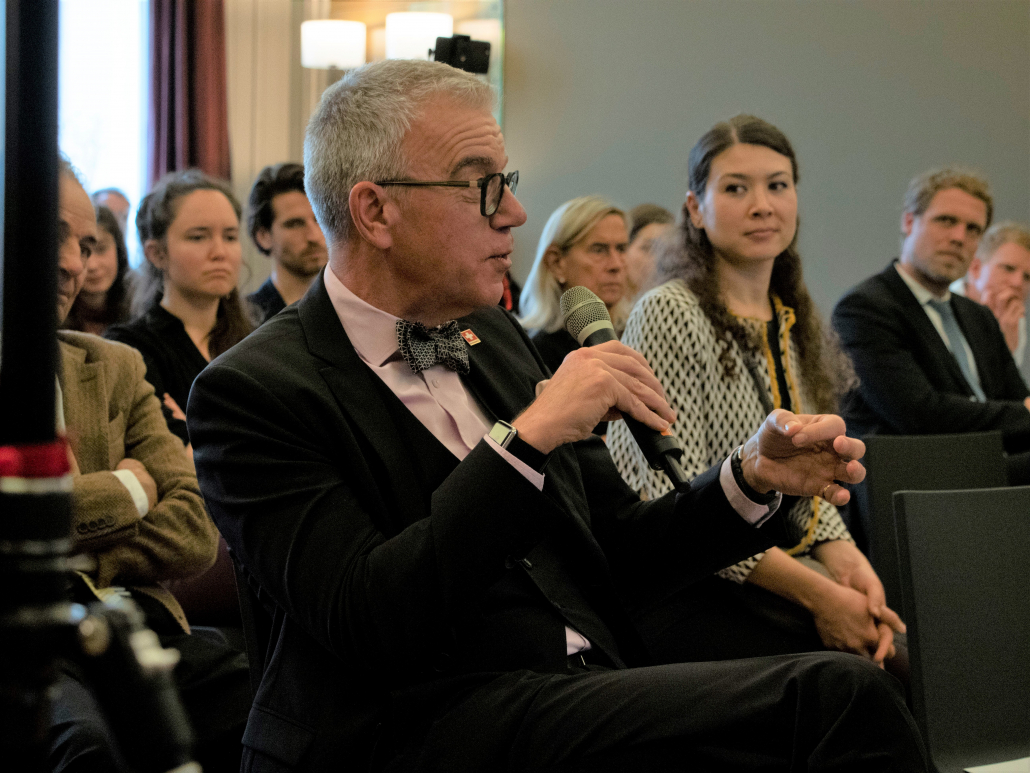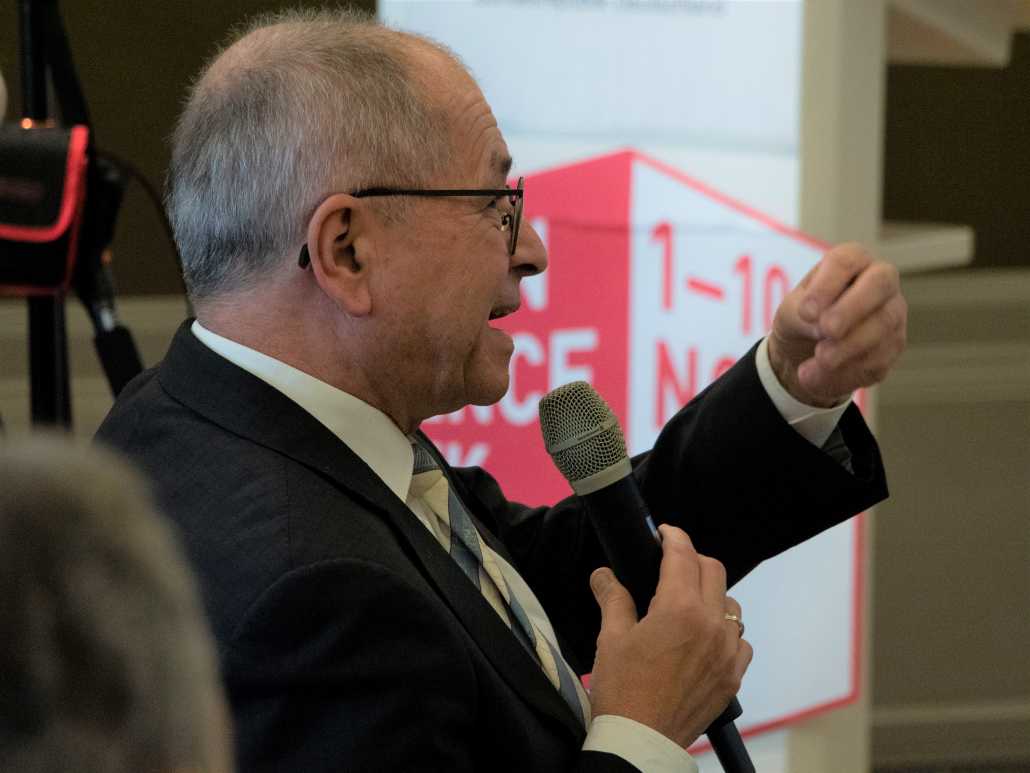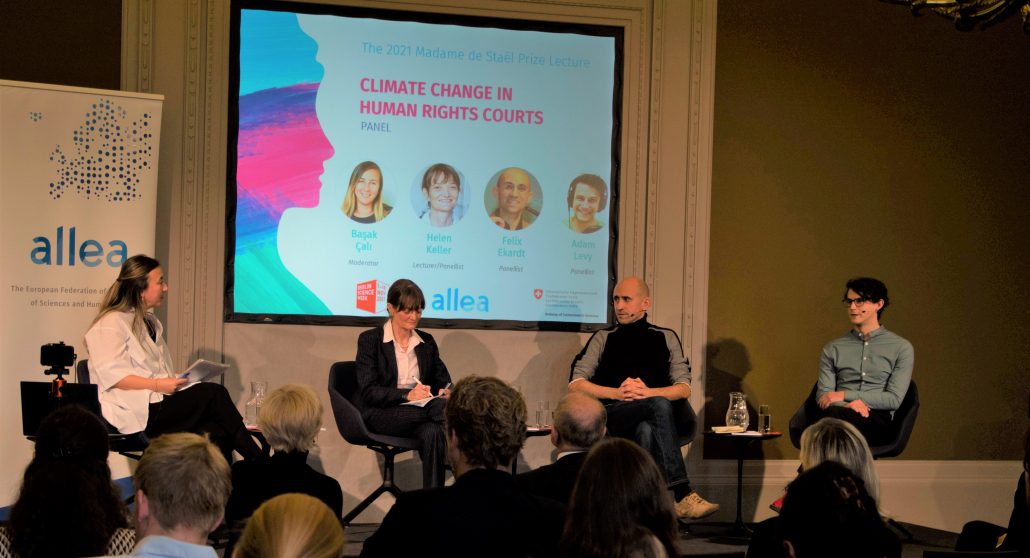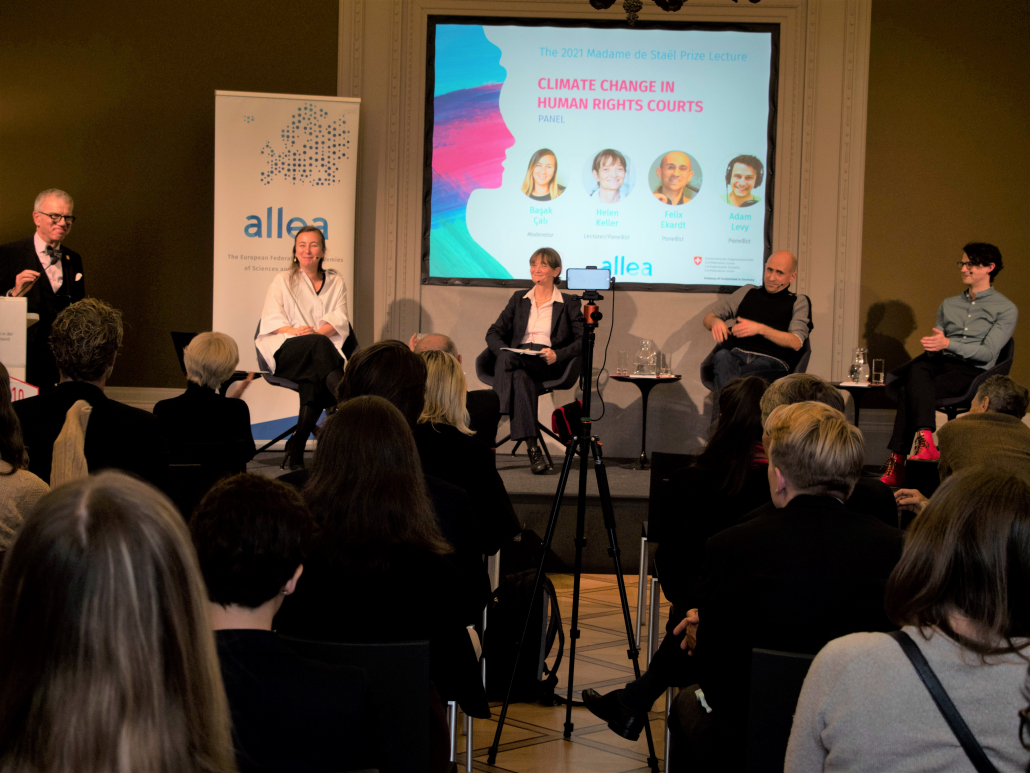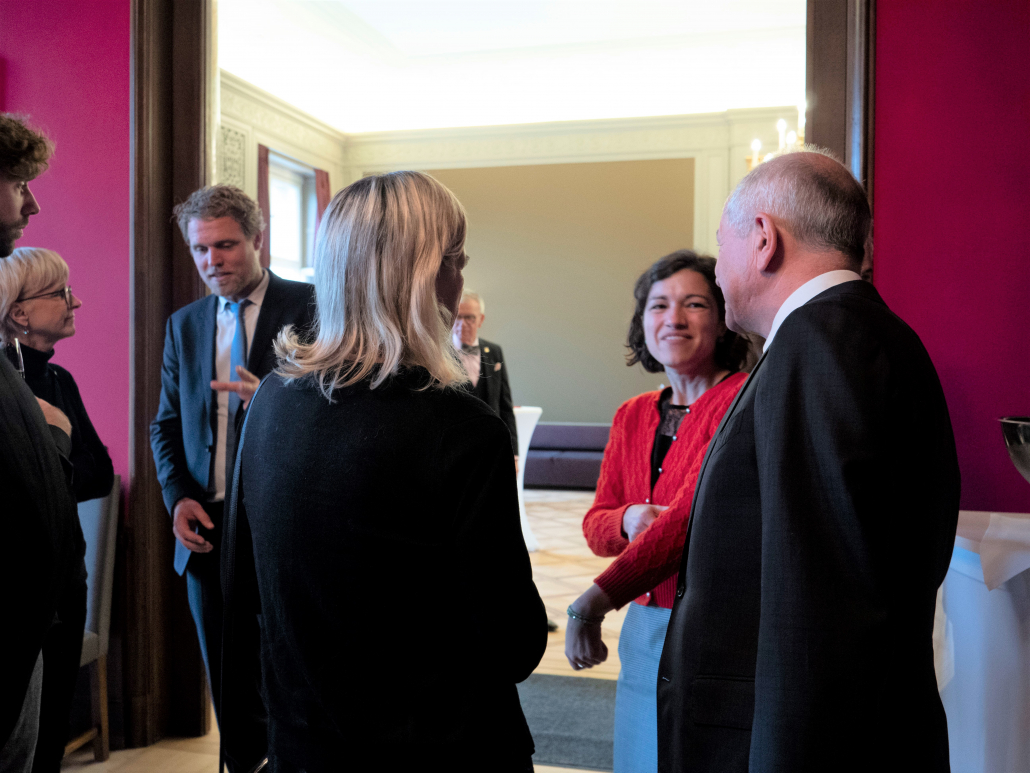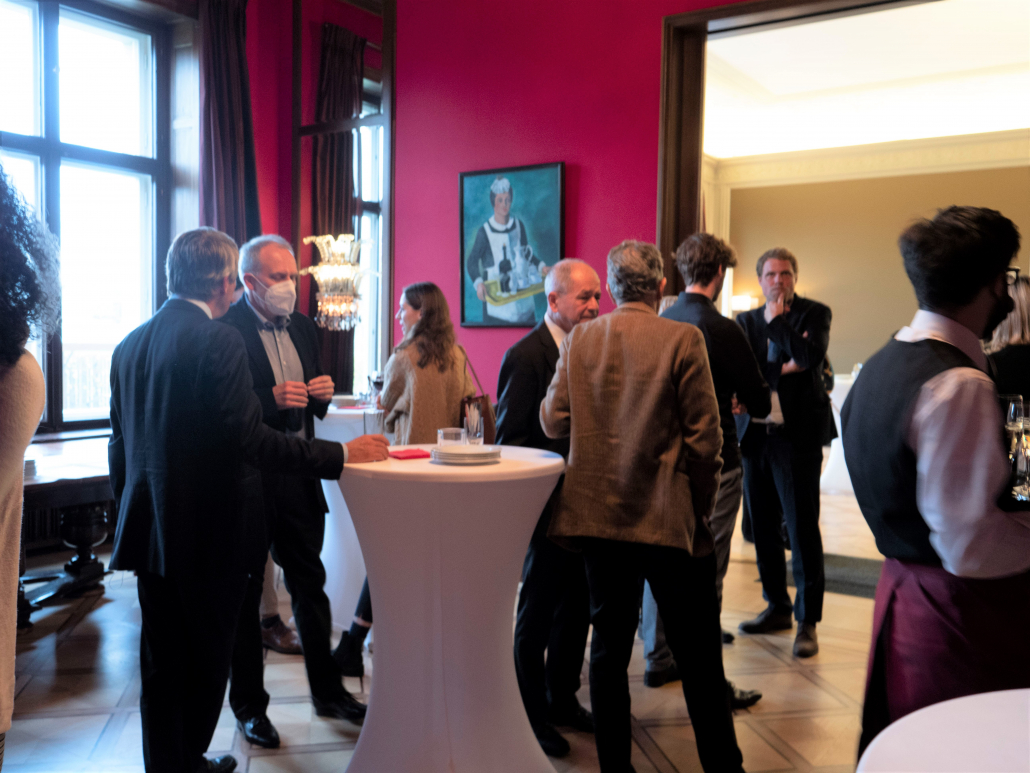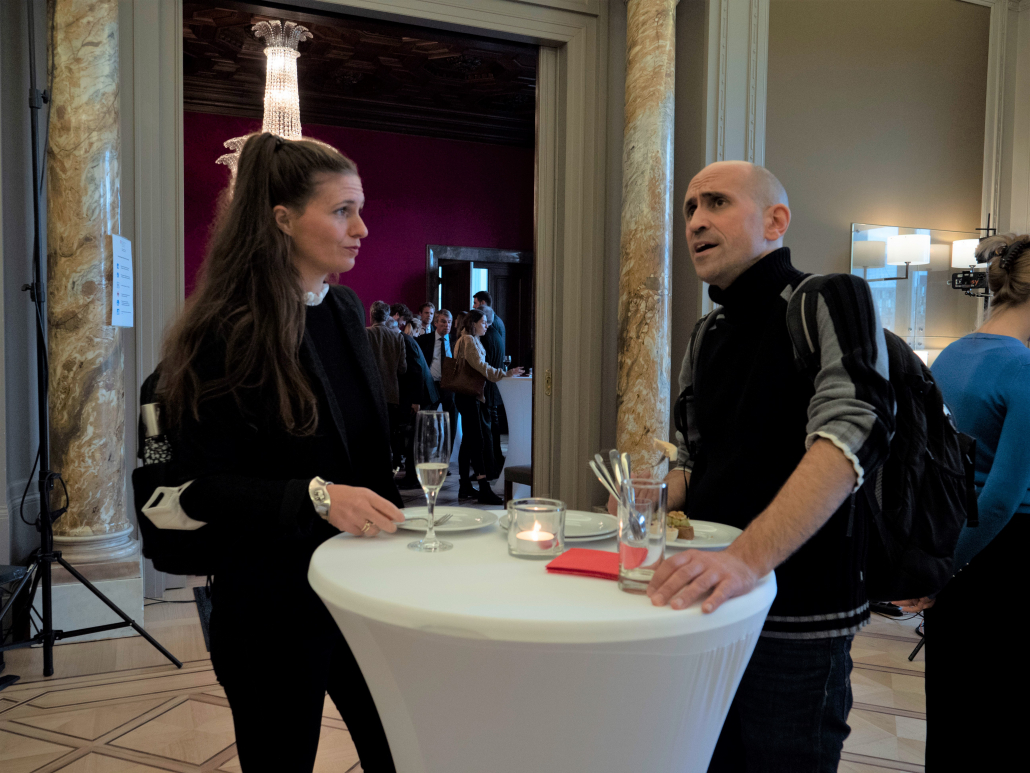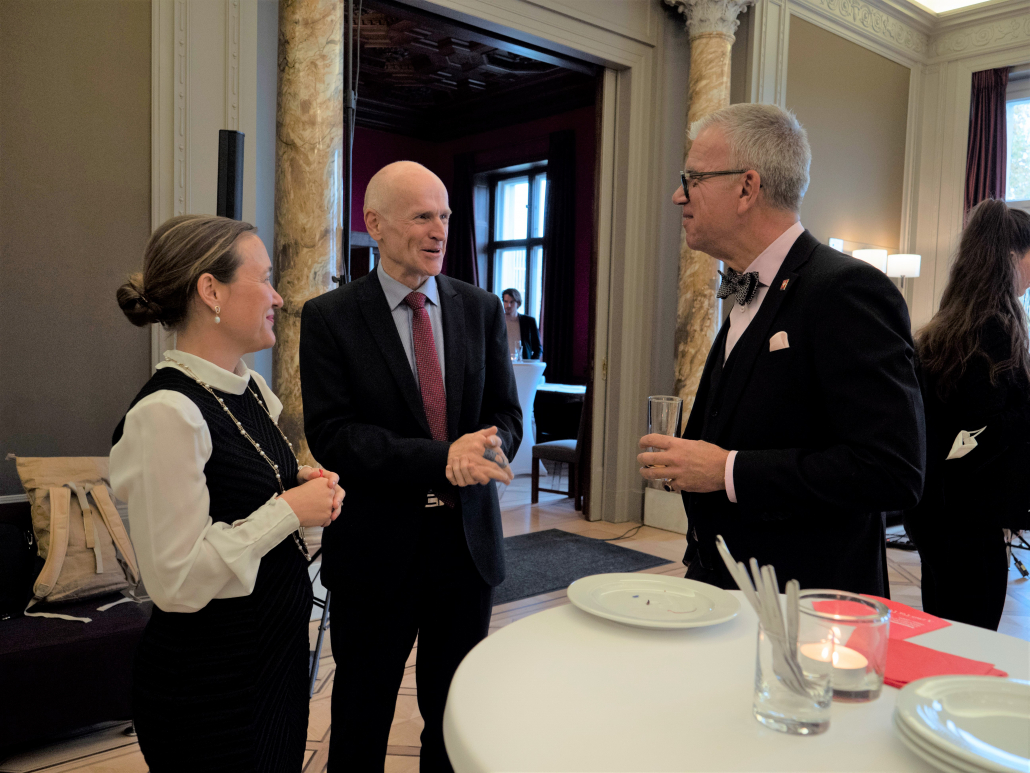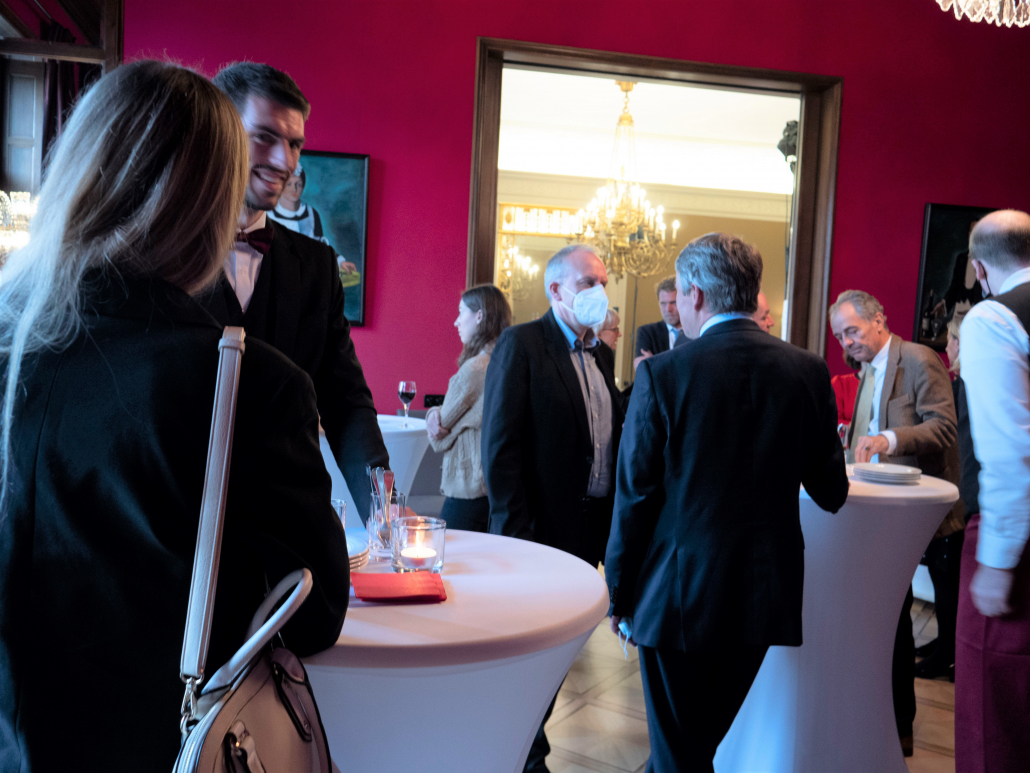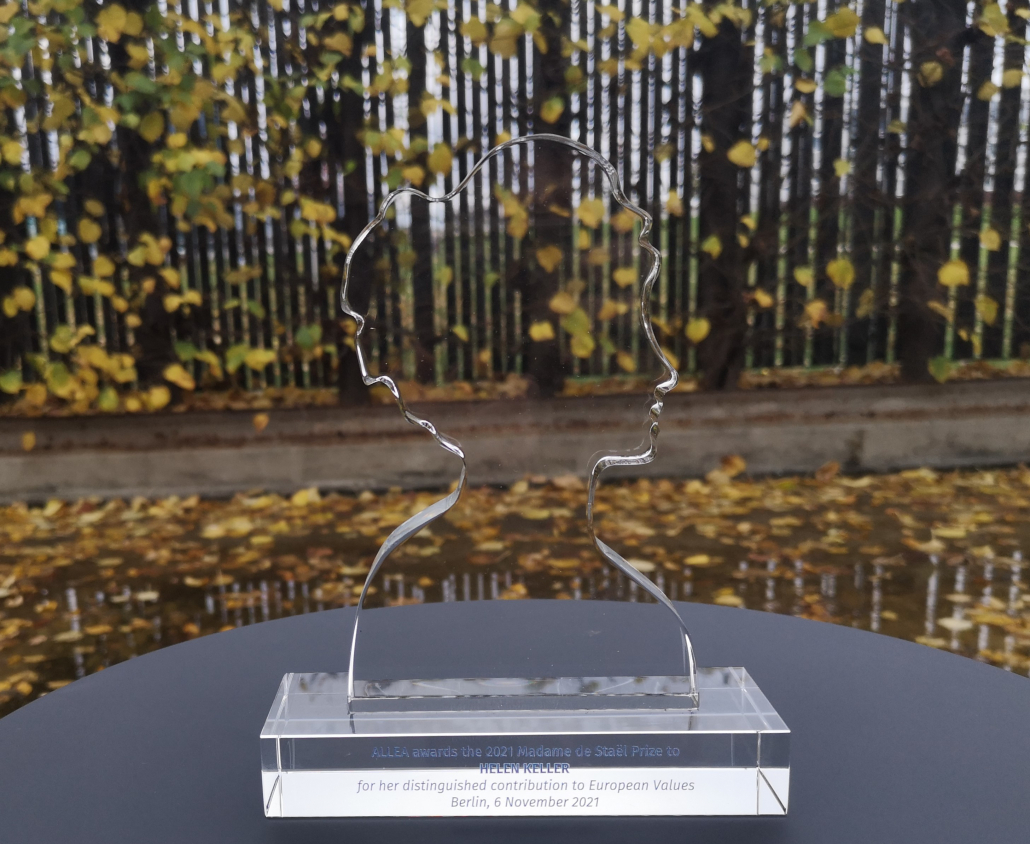2021 Madame de Staël Prize
Helen Keller, professor of law and former judge at the European Court of Human Rights, becomes the eighth recipient of the Madame de Staël Prize
Professor Helen Keller is Chair for Public Law, European and Public International Law at the University of Zurich. She is a former member of the UN Human Rights Committee and served as Judge at the European Court of Human Rights in the period of 2011-2020. In December 2020, she was appointed Judge to the Constitutional Court of Bosnia-Herzegovina. The Prize Jury recognised Professor Keller’s important contribution to the development and consolidation of human rights jurisprudence in Europe as well as her commitment to fundamental rights.
About Helen Keller
Prof. Dr. Helen Keller, LL.M., was born in 1964 and studied law at the University of Zurich. She worked as a research associate at the Institute of Law of the University of Zurich from 1989 to 1993, and obtained her doctorate in 1993. This was followed by an LL.M. at the Collège d’Europe in Bruges, Belgium, a 1995 research fellowship at the European Law Research Center at Harvard Law School, Cambridge, Massachusetts, and a further research fellowship at the European University Institute in Florence in 1996. Prof. Keller then held a position as an Oberassistentin at the University of Zurich, in the course of which she led the project to produce a commentary of the Swiss Federal Act on the Protection of the Environment (Umweltschutzgesetz). In 2001, she was a visiting fellow at the Max Planck Institute for Comparative Public Law and International Law in Heidelberg.
In 2002, Prof. Keller completed her habilitation at the Faculty of Law of the University of Zurich. From 2002 to 2004, she held the position of professor (ordinaria) for constitutional law at the University of Lucerne, Switzerland. She then accepted a position at the University of Zurich, where she taught constitutional, European and international law until 2011. From 2008 to 2011 she was a member of the United Nations Human Rights Committee.
Prof. Keller spent most of 2009 at the European Court of Human Rights in Strasbourg, where she worked on a research project concerning friendly settlements before the Court. In 2010 she completed a research fellowship at the Centre for Advanced Studies in Oslo, during which she researched the reasons why States ratify human rights treaties.
From October 2011 to December 2020, she was full-time judge at the European Court of Human Rights in Strasbourg. She has been awarded an honorary doctorate by the University of Fribourg in 2018 for her contribution to cross-fertilisation of doctrine and practice. Finally, in 2020 she was awarded the Recognition Prize of the Foundation for Western Ethics and Culture. Since December 2020, she has served as a judge at the Constitutional Court of Bosnia-Herzegovina.
The 2021 Madame de Staël Prize Lecture
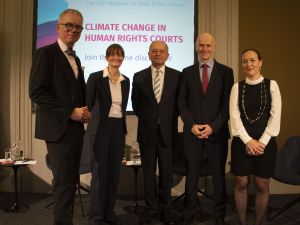
From left to right: Dr Paul R Seger, Swiss Ambassador to the Federal Republic of Germany; Professor Helen Keller, 2021 Madame de Staël Prize laureate; Professor Antonio Loprieno, President of ALLEA; Dr Roger Pfister, Head of International Cooperation of the Swiss Academies; Isabelle Gómez Truedsson, Head of the Economics, Finance and Science Department at the Swiss Embassy in Germany.
Professor Keller received her award on 6 November 2021 at the 2021 Madame de Staël Prize Lecture. The event was hosted by the Swiss Embassy in Berlin and took place in a hybrid format as part of the Berlin Science Week.
On this occasion, Professor Keller also delivered a lecture titled ‘Climate Change in Human Rights Courts: Overcoming Procedural Hurdles in Transboundary Environmental Cases’. Her lecture touched upon the rising number of environmental cases brought before domestic and international human rights bodies, and how courts, such as the European Court of Human Rights, can overcome the admissibility hurdles that currently prevent climate cases from receiving full consideration on their merits.
The event was opened with welcome remarks by this year’s host, Dr Paul R Seger, the Swiss Ambassador to Germany. Ambassador Seger, also an international lawyer by training, celebrated the fact that Professor Helen Keller was the first Swiss scholar to receive the Madame de Staël Prize, and commended her for her work as a legal academic, a lawyer, and as a judge at the European Court for Human Rights (ECtHR), where she served from 2011 to 2020. Ambassador Seger also emphasised that through Professor Keller, the work of the ECtHR, and indirectly, also the work of the Council of Europe were being recognised as institutions whose contributions to human rights, to the rule of law, and to European cohesion deserve to be highlighted.
This was followed by a laudatory speech delivered by ALLEA President Antonio Loprieno. Professor Loprieno highlighted Professor Helen Keller’s important contributions to the development and the consolidation of human rights jurisprudence in Europe, and for her relentless commitment to fundamental rights:
“Professor Keller stood out among a dozen other candidates because she not only excelled in the theoretical and academic field, having led research projects and held teaching positions for the past 20 years, but she also greatly contributed to Europe’s political and social life, serving at the United Nations Human Rights Committee between 2008 and 2011, at the ECtHR in Strasbourg between 2011 and 2020, and at the Constitutional Court of Bosnia and Herzegovina since December 2020.”
Professor Loprieno also stressed that the Madame de Staël Prize, named after Anne Louise Germaine de Staël-Holstein (commonly known as ‘Madame de Staël’), represents the values of inquisitiveness, European intellectualism, and individual as well as academic freedom, values that were embodied by Madame de Staël herself, who suffered the consequences of violence and political persecution in the 18th Century for the ideas she espoused and openly advocated for, but remained unshacken in her convictions.
Procedural Hurdles in Climate Change Litigations
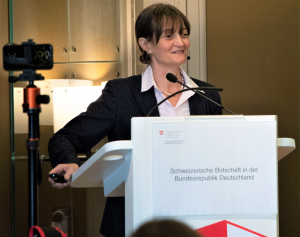
Professor Helen Keller delivers the 2021 Madame de Staël Prize Lecture.
In her lecture ‘Climate Change in Human Rights Courts: Overcoming Procedural Hurdles in Transboundary Environmental Cases’, Professor Helen Keller introduced 3 procedural admissibility hurdles that can pose particular challenges for climate change cases brought before court. As Professor Keller explained, before the ECtHR can judge a case on the merits, it must check whether all the admissibility requirements have been met. More than 90% of all cases at the ECtHR fail to comply with admissibility requirements, which means the cases are declared inadmissible before they can be judged on the merits. Respecting the admissibility requirements is also important for the legitimacy of the Court, as these are the fundamental rules for the interaction between the Court and the Member States.
The first procedural hurdle Professor Keller introduced involves the demonstratation by the applicants that they have exhausted the domestic remedies; the second hurdle requires applicants to succesfully establish that they have victim status; the third hurdle requires applicants to meet their burden of proof to show that they face a significant disadvantage. For each of these hurdles, Professor Keller highlighted that there are important exceptions that have been made in previous cases, which can serve as legal precedent for future climate litigation cases.
As a conclusion, Professor Keller remarked that:
“National and international courts are being challenged in climate cases. The devil lies in the proverbial details of many admissibility requirements. For the ECtHR, this means that it has to set new standards for various admissibility requirements in the light of the climate crisis. This is possible, but the Court must handle these questions carefully so that the Strasbourg judges cannot be accused of activism, which could endanger their legitimacy.”
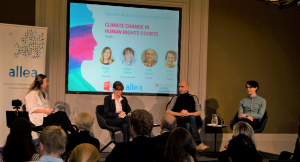
The panel was moderated by Professor Başak Çalı (Hertie School) and compossed by Professor Helen Keller, Professor Felix Ekardt (Research Unit Sustainability and Climate Policy), and Dr Adam Levy (Science Journalist and Climate Communicator).
Professor Keller’s lecture was followed by an interactive panel discussion, moderated by Professor Başak Çalı, Professor of International Law at the Hertie School and Co-Director of the School’s Centre for Fundamental Rights. She was joined by Professor Felix Ekardt, Head of the Research Unit Sustainability and Climate Policy, and Professor of Public Law and Legal Philosophy at Rostock University; and by Dr Adam Levy, Doctor in Atmospheric Physics (University of Oxford), Science Journalist, and Climate Communicator.
The panel dug a little deeper on the 3 procedural hurdles mentioned in Professor Keller’s lecture, analysing them from a legal, but also political and climate science perspective. The floor was then opened for questions from attendees at the Swiss Embassy and for those who joined the event virtually.

